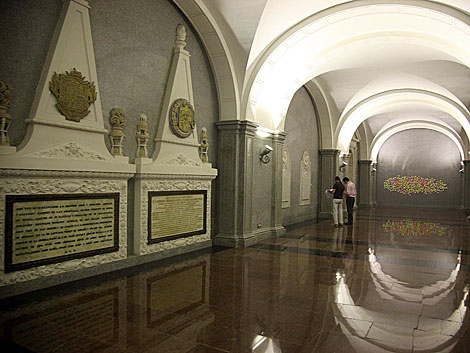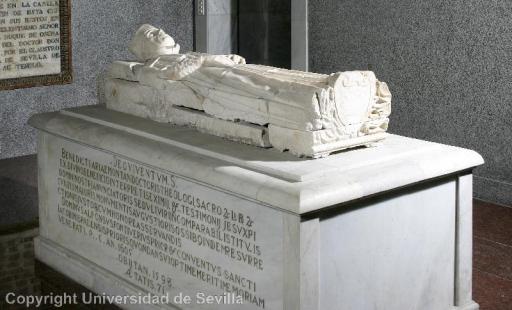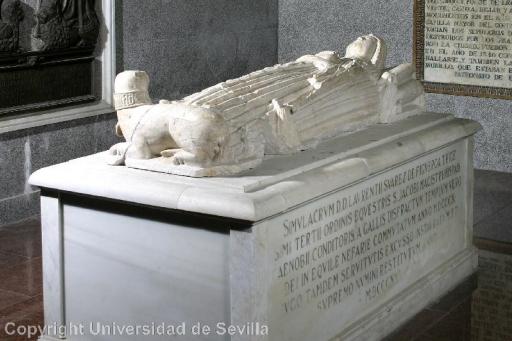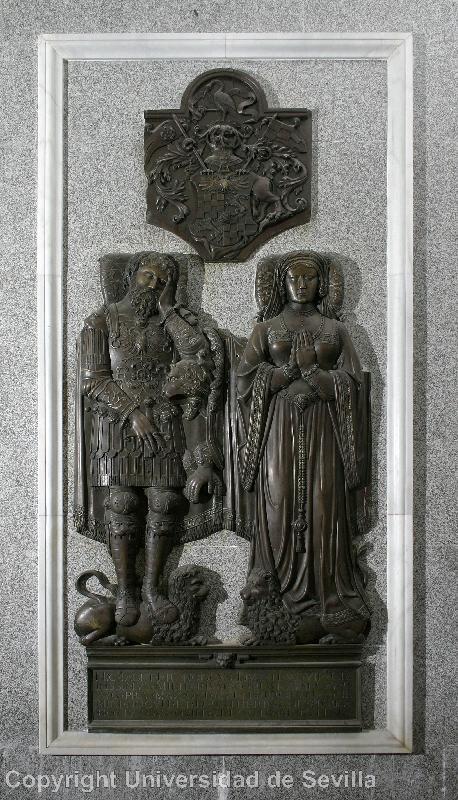Artworks
Mausoleum of Illustrious Sevillians
Description
The Faculty of Fine Arts, on Laraña Street, just down from the Temple of the Annunciation, houses the Mausoleum of Illustrious Sevillians. To access the Mausoleum, visitors must enter through a side door of the Temple. This was designed by the architect Hernán Ruiz II in the Renaissance style. The door links the Society of Jesus church with the cloister of the Professed House. Two flights of stairs, the second of which comprises black marble and slabs of white marble, lead down to the crypt.
A mausoleum to house the remains of illustrious Sevillians was the initiative of the Universidad Literaria (pre-University of Seville) in the 19th C. It was a response to the damage caused by French troops to the various temples and convents that had previous contained them. In the 1970s, under the leadership of the Director General of Fine Arts, Florentino Pérez Embid, work was undertaken to extend and protect the original Jesuit crypt, which resulted in the present image of a pantheon.
The crypt itself takes the form of a Latin cross, with a barrel vault and grey marble walls, overseen by a crucifix. The remains of several notable figures from the city (or adopted by it) are kept here, from realms as diverse as the Church, noble families, historians, humanists, writers, and poets, including: Arias Montano, Alberto Lista, Fernán Caballero, Valeriano and Gustavo Adolfo Bécquer, Mateos Gago, García de Vinuesa and his wife Regla Manjón, José Gestoso, and Amador de los Ríos.
Details
- Title: Mausoleum of Illustrious Sevillians
- Category: Building
- University: University of Sevilla
- Authors: Anonymous Author
- Location: Iglesia de la Anunciación
Share
Related Artworks
Lápidas de Francisco Duarte y Catalina de Alcocer
Anónimo
US
Panteón de Sevillanos Ilustres


 EN
EN  ES
ES 




